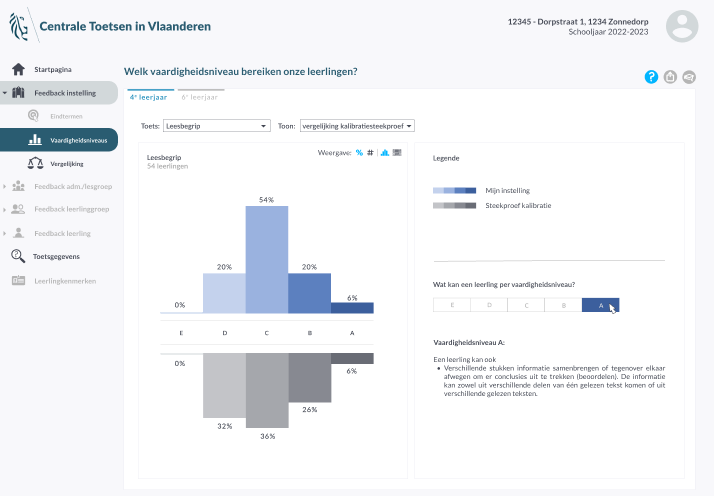PROBLEM OUTLINE
The Flemish government aims to implement central examinations for Dutch and mathematics across Flemish primary and secondary education by 2027. The Flemish government founded a consortium of 5 Flemish Universities and 2 Universities of Applied Science (including AP University of Applied Sciences an Arts) to support the development and implementation of these centralized examinations.
The central examinations aim to initiate self-reflection and incite professional development and educational innovation in schools. To fulfill this aim school leaders and teachers need a clear picture on how their pupils performed on each of the tests, on how their school is performing compared to other schools in Flanders and on how the school is performing compared to expected performances based on the schools’ population. To provide this information schools will receive online feedback dashboards. Within the above mentioned consortium, the research group is responsible for the design of these feedback dashboards.
OBJECTIVE
The general aim of the project for the research group is the research informed design usable and user-friendly (prototypes) for feedback dashboards. These dashboards target respectively principals, teachers, pupils and their parents.
METHODOLOGY
Methodologically, the project uses Educational Design Research (McKenney & Reeves, 2014) as a framework. Project activities include:
-
Literature review on design principles of feedback dashboards
-
Literature review on statistical literacy
-
Interviews with experts and stakeholders
-
Needs analysis with users
-
Design of prototypes for feedback dashboards in Figma software
-
User experience testing using questionnaires, focus groups and eye tracking
OUTCOMES
-
Prototypes of feedback dashboards for principals, teaches, pupils and parents
-
Scientific reports on research activities
-
Contributions to scientific and practice-oriented conferences.
-
Scientific publications
-
Social media posts






